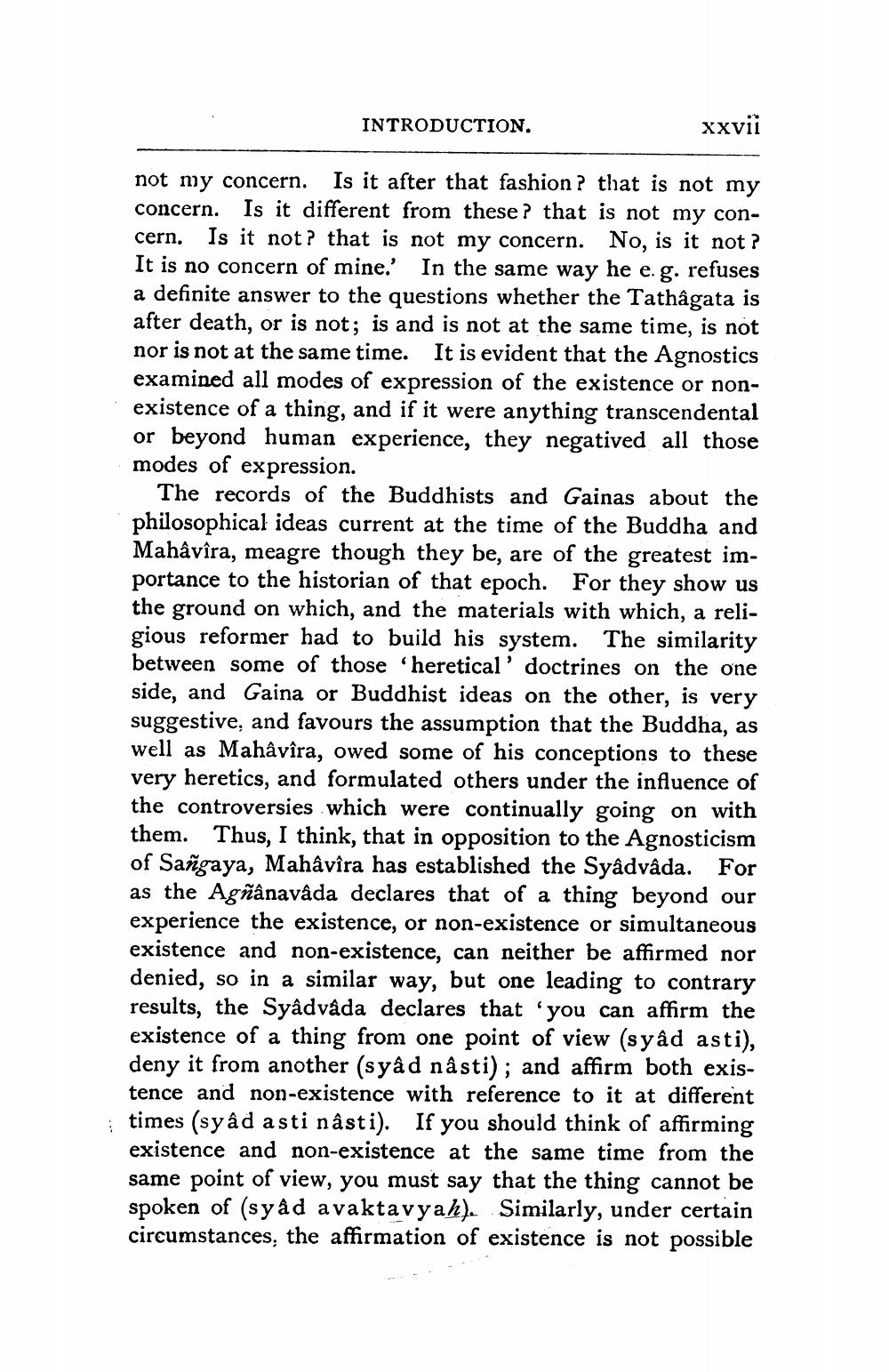________________
INTRODUCTION.
xxvii
not my concern. Is it after that fashion ? that is not my concern. Is it different from these? that is not my concern. Is it not? that is not my concern. No, is it not ? It is no concern of mine.' In the same way he e.g. refuses a definite answer to the questions whether the Tathâgata is after death, or is not; is and is not at the same time, is not nor is not at the same time. It is evident that the Agnostics examined all modes of expression of the existence or nonexistence of a thing, and if it were anything transcendental or beyond human experience, they negatived all those modes of expression.
The records of the Buddhists and Gainas about the philosophical ideas current at the time of the Buddha and Mahâvîra, meagre though they be, are of the greatest importance to the historian of that epoch. For they show us the ground on which, and the materials with which, a religious reformer had to build his system. The similarity between some of those 'heretical' doctrines on the one side, and Gaina or Buddhist ideas on the other, is very suggestive, and favours the assumption that the Buddha, as well as Mahâvîra, owed some of his conceptions to these very heretics, and formulated others under the influence of the controversies which were continually going on with them. Thus, I think, that in opposition to the Agnosticism of Sañgaya, Mahâvîra has established the Syâdvada. For as the Agñânavâda declares that of a thing beyond our experience the existence, or non-existence or simultaneous existence and non-existence, can neither be affirmed nor denied, so in a similar way, but one leading to contrary results, the Syâdvâda declares that you can affirm the existence of a thing from one point of view (syâd asti), deny it from another (syâd nâsti); and affirm both existence and non-existence with reference to it at different times (syâd asti nâsti). If you should think of affirming existence and non-existence at the same time from the same point of view, you must say that the thing cannot be spoken of (syâd avaktavyah). Similarly, under certain circumstances, the affirmation of existence is not possible




